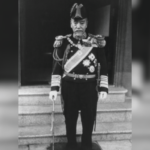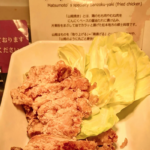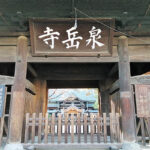Watching the Superbowl from a Company Dorm in Kobe
g

,
I’ve watched every Superbowl for the past 50 years. For Americans, that’s not a huge boast.
About 100 million Americans watch the game every year — roughly a third of the entire population. Even people who have no interest in a game of bulked up men in armadillo uniforms butting heads with each other watch the spectacle for the commercials or the halftime show or just to hang out with friends at a viewing party.
h
In my case, watching the game each year has not always been easy. Waking up in a hotel room in Geneva at 2 AM after 15 hours of flying to catch the game before a customer meeting is among the most difficult accomplishment of my life. Other years, I’ve flown to business meetings on JetBlue specifically because they offered live TV. But the most difficult games to watch were the years I lived in Japan.
.
Though I’m not a football fanatic, I enjoy watching a game on Sunday. And sometimes Monday night, too. And occasionally Thursday. And of course, the UCLA Bruins games on Saturday.
I grew up a Colts fan, my hometown team at the time, and when they abandoned the city to move to Indianapolis, I felt abandoned, too. But I left the city as well, heading to Chicago in time to enjoy the dominance of the greatest football team in history.
When a new team was established in Baltimore, my loyalty returned to my birthplace, even though by then, I was living in Japan. As a lover of literature, how could I not appreciate a team named for a poem by Edgar Allan Poe.
.
Living in a company dormitory in the era before the internet, I didn’t have a TV in my room. There was one large-screen (for the time) TV in the lobby by the front door that nobody ever watched except for a few sumo fans on Sundays, and a yearly gathering for the finals of the Koshien high school baseball tournament. But NHK broadcasted the Superbowl each year (in Japanese) and there was no way I could miss it.
Unfortunately, the game started at 9 AM Japan time and ran until about noon. On a Monday morning.
This made for an uncomfortable situation. As the only foreigner living in the dorm, and one of only a handful in the company, I felt myself in some ways to be an ambassador of America.
,
I did my best to learn the Japanese language so I could communicate with my colleagues. I felt the need to work as hard as everyone else, staying late in the office each night to walk back to the dorm with the rest of my team.
Even more than Japanese at a big company who feel pressure to fit in with the group, I knew all eyes were upon me, and everything I did was gossiped about throughout the office. The other foreigners found apartments by themselves and treated the job as a paycheck. I wanted to fit in. But the American inside wanted to watch the Superbowl.
m
If I’d simply declared I needed to take personal time and would come into the office after lunch, nobody would have cared. We were a research lab rather than a factory, so we had the freedom to work at our own pace. If I could have stayed in my room to watch the game, I could have stayed hidden. If the TV was in the cafeteria in the back, nobody would have noticed. But it wasn’t. The TV was in the lounge beside the front door. The only way to leave the dorm was to walk past the TV.
To watch the game, there was no choice but to sit alone in the lounge in one of the reclining chairs as all 300 of my colleagues walked past behind me. The furthest thing from a Superbowl party, this was uncomfortable.
A few people in my group came over to say hello as they headed into the office. Others chuckled at the gaijin as they marched through the door. Most ignored me until they caught up with their buddies to gossip.
When the game was over and I rushed into the office, my boss greeted me with, “Who won?” I felt like I was busted, though I hadn’t been hiding anything.
k
I made a public spectacle out of turning in my vacation time paperwork so everyone would know I wasn’t slacking. Though in their eyes, taking any vacation time outside of a few days in summer to visit the hometown was considered slacking.
Each year, I watched less and less of the game, and was thankful for the blowouts so I could turn off the game by halftime. Still, I felt all eyes on me as I walked into the office at 10:30 and headed straight for my desk.
This was the one day of the year when I felt caught between my desire to fit into Japanese society and my inherent gaijin-ness. But there was no way I could miss the game. Superbowl Sunday every year became Gaijin Monday. I could almost feel my face turning into a Nanbanjin that morning.
l
Returning to Los Angeles a few years later, I was able to enjoy an entire season of football again, climaxing with the spectacle of the Superbowl. Before Covid, I would invite my friends to my home to watch the game together while drinking sake and eating yakisoba. Rather than representing American culture to my colleagues in Japan, I now found myself representing Japanese culture to my American friends.
This year, the Los Angeles Rams play against the Cincinnati Bengals under the warm Los Angeles sun. Though the Ravens remain my first love, I’ll be rooting hard for the team of my adopted home of Los Angeles.
Go Rams! Gambare!
g
.
『Learn Japan Deeply with DC!』
Writer: DC Palter
Read DC’s Stories More at Japonica Publication ( medium.com/japonica-publication )
(2/4/2022)




